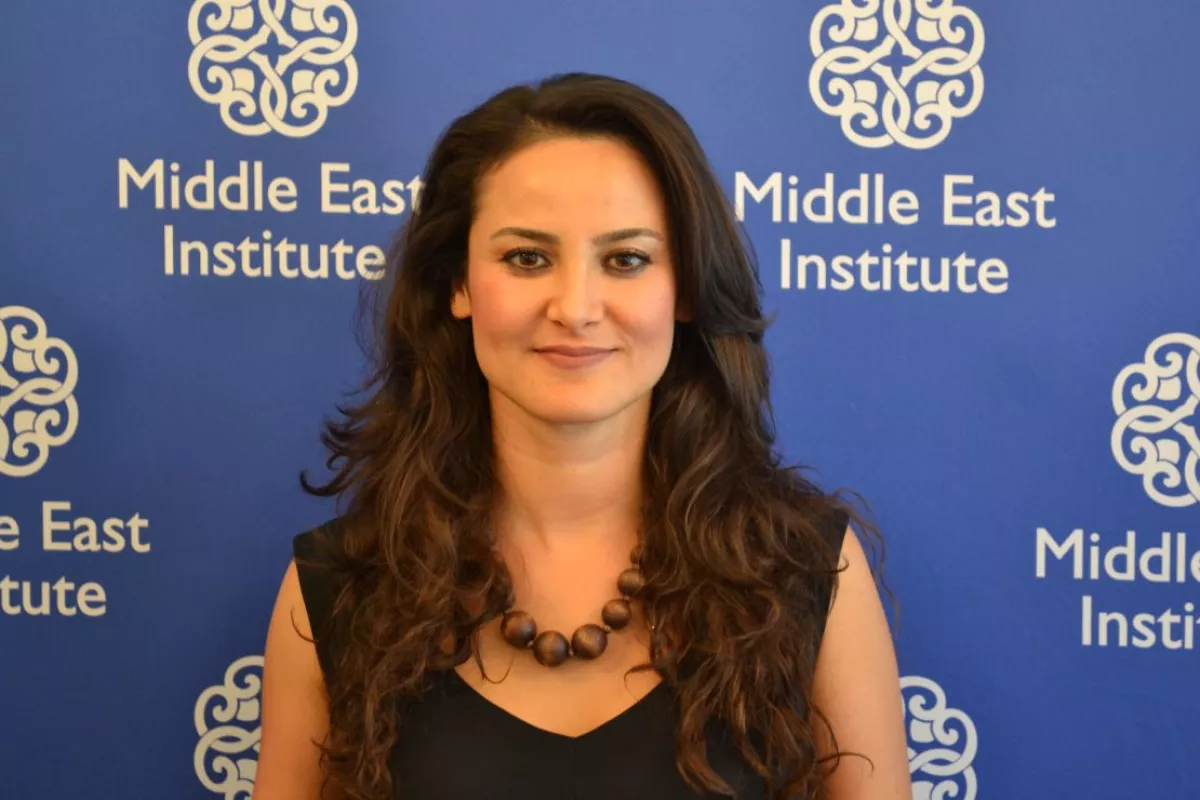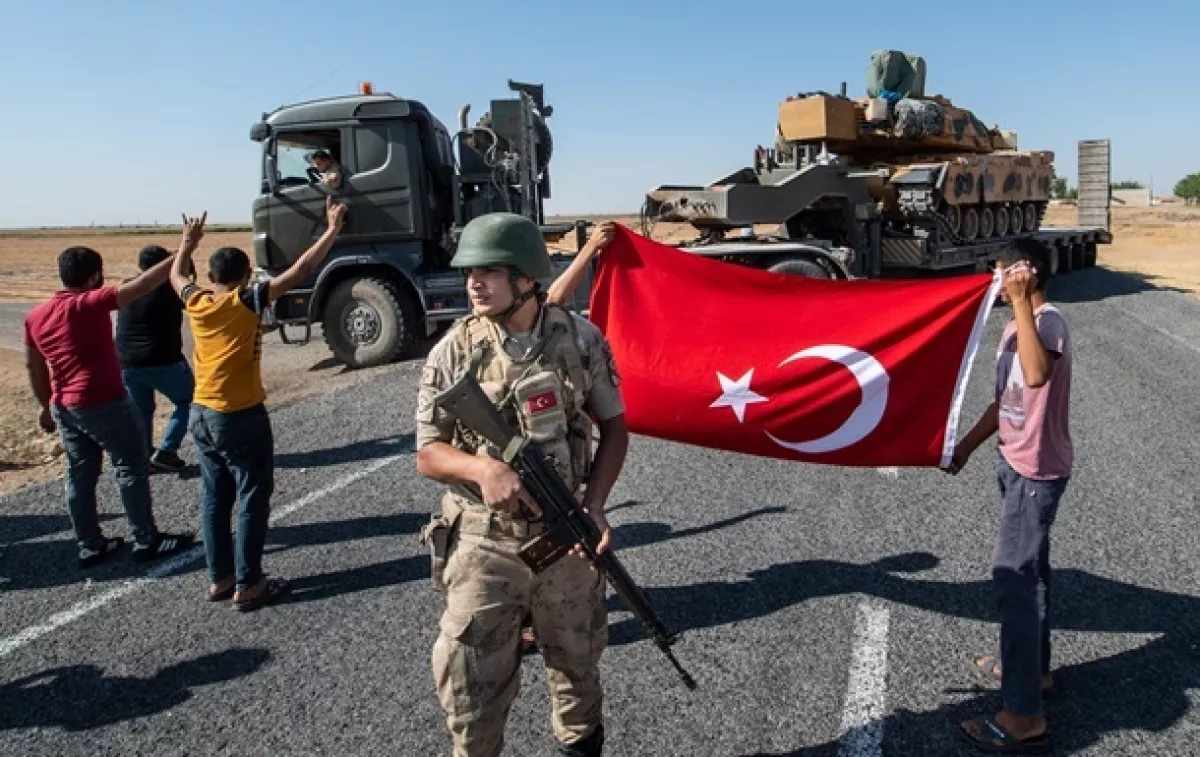Türkiye's growing influence in Syria A new geopolitical era in the Middle East
"I think Turkey is going to hold the key to Syria," stated U.S. President Donald Trump, and it seems that the near future will confirm the accuracy of this forecast.
For Türkiye, the issues surrounding Syria are not just a foreign policy matter but also an internal one. The two countries share the longest border—approximately 900 km. Türkiye is home to over 3.6 million Syrian refugees. For decades, Ankara has consistently supported the opposition to Bashar al-Assad's government, and today, President Erdoğan can confidently declare that his political approach has been a resounding success.
The new Syrian government owes much of its victory to Turkish support, and there is little doubt that Türkiye’s influence in Damascus will soon be significant, if not dominant. This will enable Türkiye to address four key objectives in relation to Syria: the return of Syrian refugees, border security, diminishing the political and military gains of Kurdish groups, and securing concessions and preferences on political and economic matters.
Regarding the refugee issue, policymakers in both Türkiye and neighbouring Arab countries understand that this will be a long-term process. On December 8, Turkish Foreign Minister Hakan Fidan stated, "We are placing a great emphasis on Syria's territorial integrity. Millions of Syrians who were forced to leave their homeland can now return." While some people have already begun returning home, Syria remains devastated by war, and many refugees have no homes to return to—they simply have nowhere to go.
Israeli media highlight that with its victory, Türkiye also takes on the responsibility of supporting Syria's stability and territorial integrity. The Times of Israel quotes Sinan Ulgen, director of the Istanbul-based Center for Economics and Foreign Policy Studies: "The first risk that Turkey would want to avoid that all cost is the territorial disintegration of Syria, with different power structures vying to obtain autonomy on their territory."
Another complex issue, according to Israeli analysts, is maintaining control over the Syrian government, which may pursue its own interests. This is discussed by Gonul Tol, director of the US-based Middle East Institutes’ Turkish Program and senior fellow of the Black Sea Program, who considers the ruling organization Hay'at Tahrir al-Sham to be "unpredictable." However, other experts believe that Ankara has sufficient tools to manage its allies.

One potential tool for this could be a program for training military and civilian specialists for the new government. Turkish Defence Minister Yaşar Güler emphasized that Türkiye is ready to cooperate with the Syrian government on training military personnel if a formal request is made. Güler also stated that the new regime should be given a chance to prove itself: "In its first statement, the new administration declared that it would respect all government institutions, the United Nations, and other international organizations... We believe we need to see what the new administration will do and give it a chance."
When it comes to geopolitical shifts, several factors should be noted. First and foremost, Türkiye has strengthened its position relative to Russia and Iran. Whereas Ankara previously had to turn to Moscow and Tehran to reach agreements with Bashar al-Assad's regime, the roles have now reversed. Russia and Iran must now seek Türkiye's support for negotiations with the new regime in Damascus. This is particularly important for Russia, which uses its bases in Syria for operations in Africa and the Mediterranean basin.
The further development of Türkiye's relations with another key regional player—Israel—is particularly interesting. For the first time in history, the two countries have the opportunity to establish trade connections overland. The new head of Syria, Abu Mohammed al-Jolani, has already stated, "We do not intend to enter into conflict with Israel," and assured that his country will not become a launching pad for anti-Israeli actions. This will facilitate an overland route from the Israeli-controlled Golan Heights to Türkiye's southern provinces. At the same time, experts note that there may be a clash of interests between the two countries in the competition for spheres of influence in Syria.

The fall of Bashar al-Assad has elevated the stature of Turkish leader Recep Tayyip Erdoğan to unprecedented heights in the Middle East. In 2020, disregarding protests from Europe, Türkiye's president returned the Hagia Sophia mosque to worshippers. He supported the civilian population of the Gaza Strip and, in just a few days, freed the largest Arab country from Bashar al-Assad’s dictatorship.
Türkiye has once again emerged as a saviour of Muslims in the Arab and broader Islamic world. However, this has naturally sparked jealousy and concern among other influential powers in the region. Many countries fear that, having achieved victory in Syria, Türkiye will continue to expand its influence at their expense, following the logic that "appetite comes with eating." Currently, Turkish diplomats are negotiating with politicians from neighbouring countries—Jordan, Saudi Arabia, Qatar, and Egypt—to ensure that instability does not spread to these nations.
Özgür Ünlühisarcıklı, director of the German Marshall Fund in Ankara, points out that involving third countries in the reconstruction of Syria will help alleviate the concerns of its neighbours. "Negotiations will take place to determine Syria's future," he said. "Türkiye will have influence, but so will the United States and Middle Eastern countries that will finance Syria's reconstruction."
After 13 painful years of war, Ankara justifiably believes it has won. However, the real challenge lies ahead—winning the post-conflict phase, ensuring peace in Syria, and preventing the resurgence of violence. Nevertheless, it seems Türkiye is well-positioned to achieve this goal.








